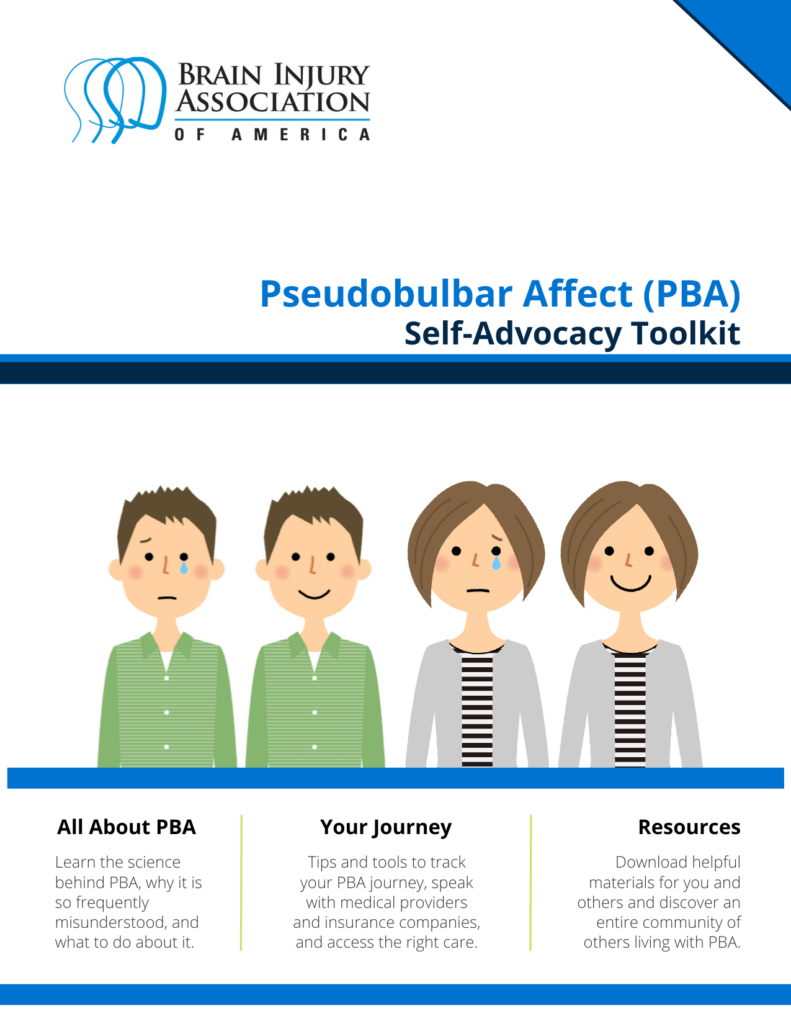Pseudobulbar affect (PBA) is a neurological condition involving involuntary, sudden, and frequent episodes of laughing or crying. It occurs secondary to neurological disease – meaning that PBA is caused by another disorder.
Normally, the cerebral cortex communicates with the cerebellum to control our emotional responses to situations. Sometimes, the cerebellum becomes damaged by lesions or nerve problems, disrupting communication between these two areas. PBA is thought to result from this miscommunication. It’s almost like the brain “short circuits” and one can no longer control their emotional response.
PBA can cause debilitating physical and emotional complications. That’s why the Brain Injury Association of America put together the PBA Self Advocacy Toolkit. This guide provides important information for individuals who may be impacted by PBA.
You can join our community and get a free copy of our PBA Self-Advocacy Toolkit, which includes:
You’ll also receive news and other resources from the Brain Injury Association of America.
